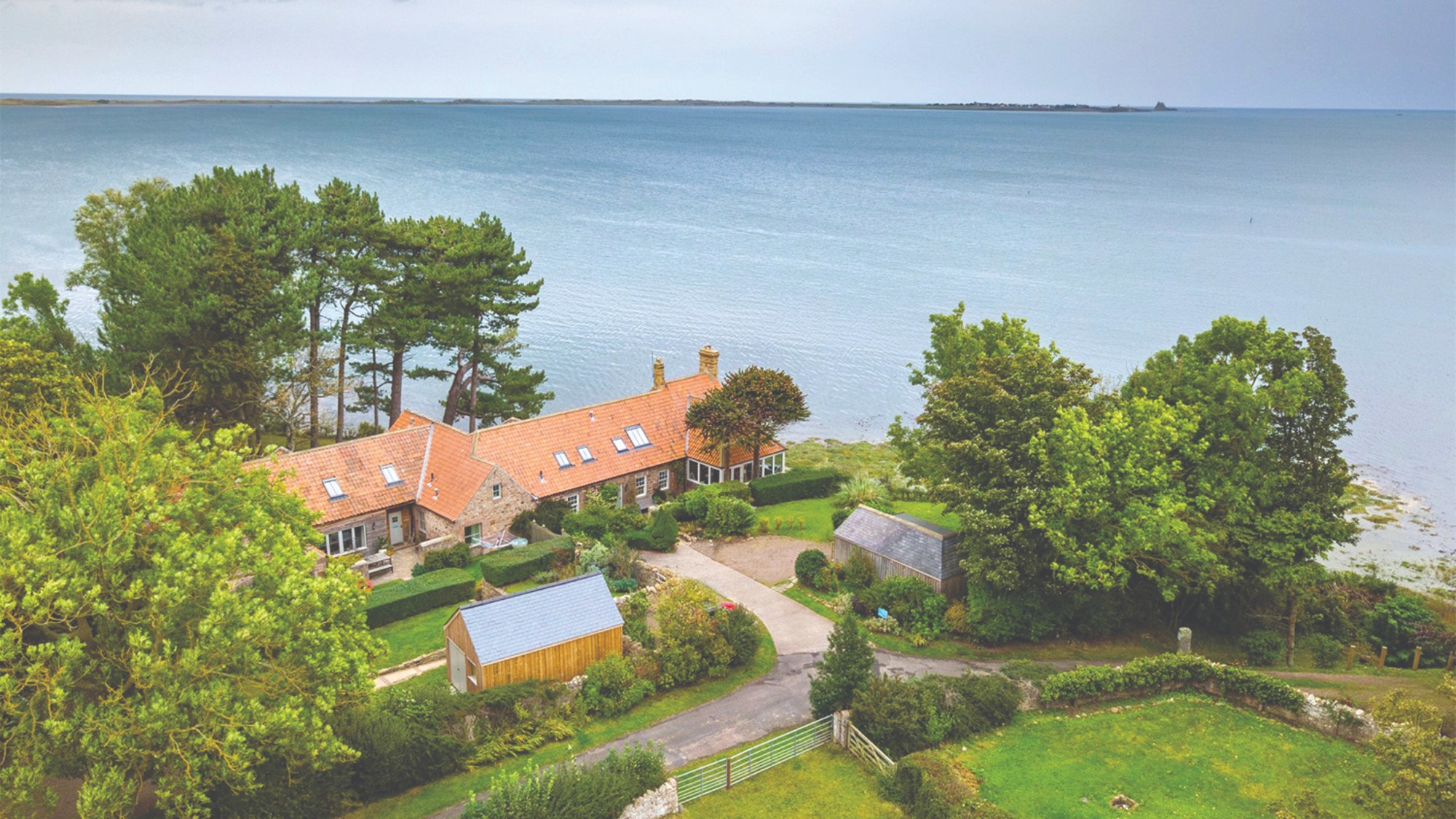General election 2024: who will win? All the latest odds and polls
The final polls look dire for the Tories – but Labour may not have as much to celebrate as it seems

A free daily email with the biggest news stories of the day – and the best features from TheWeek.com
You are now subscribed
Your newsletter sign-up was successful
With less than 24 hours before polls open, Labour is on course to form the next government with a massive triple-digit majority that could see the Conservatives reduced to the lowest number of seats in their long history.
While there is near-unanimous agreement that Labour will win comfortably on Thursday, pollsters continue to disagree on how big their majority will be. Estimates range from 162 to 382, said the inews site.
Look more closely at that near-certain majority, however, and the future doesn't seem quite so rosy for the Labour Party. If Keir Starmer takes office as expected, he will be the least popular opposition leader to become prime minister in recent history, with a net satisfaction rating of -19, according to polling firm Ipsos-Mori.
The Week
Escape your echo chamber. Get the facts behind the news, plus analysis from multiple perspectives.

Sign up for The Week's Free Newsletters
From our morning news briefing to a weekly Good News Newsletter, get the best of The Week delivered directly to your inbox.
From our morning news briefing to a weekly Good News Newsletter, get the best of The Week delivered directly to your inbox.
That makes him less toxic to voters than predecessors Jeremy Corbyn and Ed Miliband, said The Sun's political editor Harry Cole, but "they did not win". In contrast, in 1997 Tony Blair "boogied down Downing Street to 'Things Can Only Get Better' with a net satisfaction of +22, with just 29% of voters saying they did not like him".
Indeed, all evidence suggests Labour's lead is something of a smokescreen, a result of widespread voter disillusionment with the Tories rather than enthusiasm for Starmer's vision. A Financial Times analysis of pre-election polls found that both parties are "on course to register their lowest combined vote share in a century", with large gains expected for third parties, notably the Lib Dems and Reform.
"The UK electoral landscape has fragmented dramatically, reflecting rising dissatisfaction with the established parties," Patrick Diamond, professor of public policy at Queen Mary University of London, told the newspaper.
The latest polls and odds
There's quite a lot of variation between the polls but they all agree that Labour has a big lead over the Conservatives, said the BBC.
A free daily email with the biggest news stories of the day – and the best features from TheWeek.com
The BBC's poll tracker gives Labour an average national vote share of 40%, a 20-point lead over the Conservatives on 21%, with Reform UK on 16% and the Lib Dems on 11%. Politico said that Labour is on the cusp of entering government with a "landslide of historic proportions".
This roughly aligns with The New Statesman's Britain Predicts model, last updated on 29 June, which predicts Labour could end up with 436 MPs, with the Tories on just 90. Dropping into double figures is one of the benchmarks that might signal an extinction-level event for one of the most successful political parties in history.
A new MRP poll by Survation predicts an even more dire outcome. The survey of 34,558 people suggests Labour are on track to win 484 seats – giving them a majority of 159 – with the Tories only just squeaking into the role of official opposition with 64 seats to the Lib Dems' 61. Reform would take seven seats, "despite the party winning more votes nationwide than any other except Labour and the Conservatives", said The Telegraph.
Bookmakers overwhelmingly favour Labour too. William Hill has Keir Starmer at 1/100 to be the next prime minister, while a Rishi Sunak victory is priced at 33/1, with Farage just behind on 40/1, according to Oddschecker.
What policies are popular… and which are not?
The latest Ipsos Issue Index for June continued to show that the NHS is the top priority for voters, followed by the economy, immigration, inflation, cost of living, and housing.
YouGov polling on public attitudes to specific proposals put forward by the main parties shows that while Britons tend to back both Labour and Conservative pledges not to increase National Insurance, VAT or income tax, they are more divided on other areas.
The Conservatives' triple lock plus pensions pledge has proved popular with the British public, with three-quarters (73%) backing the plan to raise the amount pensioners can receive before having to pay income tax in line with the annual increase in the state pension.
The party's much-discussed national service pledge enjoys less support, with around half (52%) opposed to the proposal that 18-year-olds serve a year in the armed forces, or commit to one weekend of volunteering per month for a year, compared to 39% who support it.
Labour's manifesto fleshed out the six key policies unveiled by Starmer in May. These include promises on the economy, energy, crime, education, the NHS and immigration.
YouGov found Labour plans to introduce VAT on private schools is welcomed by 61% of Britons, and supported by those who voted Conservative in 2019 by 49% to 36%.
Labour's flagship policy of creating a publicly owned renewable energy provider is backed by three-quarters (74%) of voters. However, the plan to lower the voting age to 16 is opposed by 60% of voters, with 79% of over-65s against reducing the voting age.
Sorcha Bradley is a writer at The Week and a regular on “The Week Unwrapped” podcast. She worked at The Week magazine for a year and a half before taking up her current role with the digital team, where she mostly covers UK current affairs and politics. Before joining The Week, Sorcha worked at slow-news start-up Tortoise Media. She has also written for Sky News, The Sunday Times, the London Evening Standard and Grazia magazine, among other publications. She has a master’s in newspaper journalism from City, University of London, where she specialised in political journalism.
-
 What to watch out for at the Winter Olympics
What to watch out for at the Winter OlympicsThe Explainer Family dynasties, Ice agents and unlikely heroes are expected at the tournament
-
 Properties of the week: houses near spectacular coastal walks
Properties of the week: houses near spectacular coastal walksThe Week Recommends Featuring homes in Cornwall, Devon and Northumberland
-
 Will Beatrice and Eugenie be dragged into the Epstein scandal?
Will Beatrice and Eugenie be dragged into the Epstein scandal?Talking Point The latest slew of embarrassing emails from Fergie to the notorious sex offender have put her daughters in a deeply uncomfortable position
-
 The Mandelson files: Labour Svengali’s parting gift to Starmer
The Mandelson files: Labour Svengali’s parting gift to StarmerThe Explainer Texts and emails about Mandelson’s appointment as US ambassador could fuel biggest political scandal ‘for a generation’
-
 Will Peter Mandelson and Andrew testify to US Congress?
Will Peter Mandelson and Andrew testify to US Congress?Today's Big Question Could political pressure overcome legal obstacles and force either man to give evidence over their relationship with Jeffrey Epstein?
-
 Reforming the House of Lords
Reforming the House of LordsThe Explainer Keir Starmer’s government regards reform of the House of Lords as ‘long overdue and essential’
-
 How long can Keir Starmer last as Labour leader?
How long can Keir Starmer last as Labour leader?Today's Big Question Pathway to a coup ‘still unclear’ even as potential challengers begin manoeuvring into position
-
 What is at stake for Starmer in China?
What is at stake for Starmer in China?Today’s Big Question The British PM will have to ‘play it tough’ to achieve ‘substantive’ outcomes, while China looks to draw Britain away from US influence
-
 Can Starmer continue to walk the Trump tightrope?
Can Starmer continue to walk the Trump tightrope?Today's Big Question PM condemns US tariff threat but is less confrontational than some European allies
-
 Three consequences from the Jenrick defection
Three consequences from the Jenrick defectionThe Explainer Both Kemi Badenoch and Nigel Farage may claim victory, but Jenrick’s move has ‘all-but ended the chances of any deal to unite the British right’
-
 The high street: Britain’s next political battleground?
The high street: Britain’s next political battleground?In the Spotlight Mass closure of shops and influx of organised crime are fuelling voter anger, and offer an opening for Reform UK